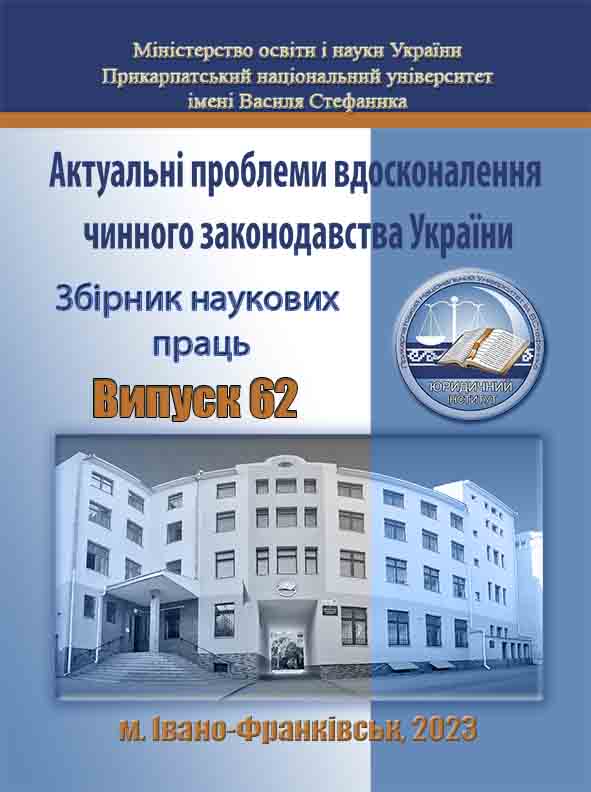The formation of views on the ratio of public to private law in the French legal doctrine
DOI:
https://doi.org/10.15330/apiclu.62.4.63-4.81Keywords:
public law, private law, interconnection of public and private law, correlation, interaction, legal dichotomy, legal convergenceAbstract
In the article, the author tries to focus on the problem of the evolution of views on the relationship between the public and the private law in the French legal doctrine in view of the constitutive nature of this dichotomy of law for the Romano-Germanic legal family, to which the Ukrainian legal system gravitates. At the same time, the author attempted a generalized analysis of the key ideas and theoretical provisions in the history of the development of the French legal opinion regarding the distinction between the public and the private law.
The author came to the following conclusions: 1) the problem of distinguishing the public and the private law did not immediately acquire significant importance, because in the Middle Ages, the ancient dichotomy of law was practically forgotten, and the revival of interest in the idea of dividing law into public and private, initiated by representatives of the humanist school, took place within ancient legal tradition; 2) during the 16th and 17th centuries, in connection with the formation of the theories of sovereignty and the nation state in the French legal doctrine, the public and the private law began to be contrasted and distinguished in the context of increasing state influence; 3) with the development of the concepts of natural law that limited state power, the distinction between the public and the private law begins to be gradually carried out at the worldview and in the levels of legal theory, which was significantly actualized in the 18th century under the influence of liberal ideas; 4) in the 19th century, the separation of private law from public law in the Civil Code of 1804, the development of administrative law intensified the development of issues of distinguishing the public and the private law, primarily in the context of formulating its criteria, criticizing the absolutization of the division of law into public and private; 5) in the 20th century, under the influence of the socio-economic changes, the strengthening of the role of the state and the corresponding expansion of the sphere of public law, European integration and the processes of globalization, there is a rethinking of the traditional distinction between the public and the private law in the context of expressing doubts about the expediency and validity of the division of law into public and private, research issues of legal convergence, interaction and mutual penetration of the public and the private law, arguments for the existence of the «mixed» («hybrid») branches of law.
The author draws attention to the fact that the modern French legal system continues to preserve the dualism of the public and the private law, which is reflected in legislation, the functioning of the judicial system, legal practice, and legal opinion seeks to find a balance between preserving the traditional understanding of the relationship between the public and the private law and adapting to new realities where the boundaries between the public and theprivate law are becoming increasingly blurred.


